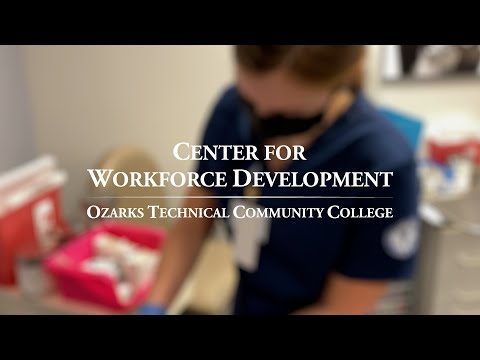A Glossary of Medical Office Assistant Terminology
Contents [show]
If you’re considering a career in medical office administration, it’s important to familiarize yourself with the jargon. Here’s a quick glossary of common terms you’re likely to encounter.
Checkout this video:
1. What is a medical office assistant?
A medical office assistant is a person who performs a variety of administrative and clinical tasks to support the work of medical practitioners in a medical office or clinic setting. Typically, medical office assistants work under the supervision of a licensed health care practitioner such as a physician, nurse, or physiotherapist.
2. What are some common duties of a medical office assistant?
The duties of a medical office assistant vary depending on the specific job, but may include tasks such as answering phones, scheduling appointments, handling correspondence, preparing patients for examinations, taking patient medical histories, and assisting with minor office procedures.
3. What is an Electronic Health Record (EHR)?
An EHR is an electronic version of a patient’s paper chart. It includes all of the same information that would be found in a paper chart, such as demographics, diagnoses, medications, immunizations, laboratory results, and radiology reports. EHRs can be used by multiple providers within a single organization or across multiple organizations (e.g., hospitals and clinics) to provide continuity of care for patients.
4. What is a Health Information Exchange (HIE)?
An HIE is an electronic network that allows different organizations (e.g., hospitals, clinics, laboratories) to share patient health information securely. HIEs make it possible for providers to have access to up-to-date information about their patients’ health regardless of where the patient receives care. This can improve coordination of care and lead to better outcomes for patients.
5. What is Meaningful Use?
Meaningful Use is a federal incentive program that encourages eligible professionals and hospitals to adopt, implement, upgrade, or demonstrate meaningful use of certified EHR technology in order to receive incentive payments from Medicare and Medicaid programs. To be eligible for incentive payments under Meaningful Use guidelines, providers must use EHRs in ways that improve patient care and meet certain standards related to clinical quality measures and exchange of health information.
2. What are the duties of a medical office assistant?
A medical office assistant (MOA) is a multi-skilled professional who works in a medical office providing administrative support to the physician(s), nurses and other health care practitioners. MOAs are responsible for a variety of tasks in the office including answering phones, greeting patients, scheduling appointments, preparing charts, collecting patient data and managing medical records
The duties of a medical office assistant may vary depending on the size and type of medical practice. In a small office, the MOA may be responsible for all aspects of the administrative operation. In a larger office or clinic, the MOA may work as part of a team that includes receptionists, billing and coding specialists and other support staff.
3. What is the job outlook for medical office assistants?
According to the Bureau of Labor Statistics, the job outlook for medical office assistants is positive. The number of positions is expected to grow by 33 percent from 2012 to 2022, which is much faster than the average for all occupations. This projected growth is due in large part to an aging population and an increasing demand for health care services. As the baby boomer generation ages, they will require more medical care, and this will result in more demand for medical office assistants.
4. What are the educational requirements for medical office assistants?
There are no formal educational requirements for medical office assistants, although most have at least a high school diploma. Some community colleges offer programs in medical office assisting, which typically last one year and result in a certificate or diploma. These programs usually include coursework in Medical Terminology transcription, insurance billing and coding, and office procedures. Medical office assistants who have completed a formal education program generally find it easier to obtain employment than those who have no formal training. In addition, completion of a medical office assisting program may lead to higher wages.
5. What are the skills required for medical office assistants?
Most entry-level medical office assistant positions will require you to have basic office skills, such as typing, filing, and answering phones. You will also likely be responsible for handling incoming and outgoing mail, scheduling appointments, and maintaining patient records. In addition to these basic office skills, medical office assistants should also have a basic understanding of medical terminology and office procedures.
6. How much do medical office assistants earn?
The salary for a medical office assistant depends on many factors, including the state in which they work, their level of experience, and their education. In general, medical office assistants in the United States earn an average salary of $33,610 per year.
7. What are the working conditions for medical office assistants?
The typical work environment for medical office assistants is in an outpatient clinic, doctor’s office, or hospital. They may be required to sit or stand for long periods of time and do repetitive tasks such as keyboarding or data entry. They may also have exposure to communicable diseases and hazardous materials.
8. What are the challenges faced by medical office assistants?
One of the challenges faced by medical office assistants is the increasing use of electronic health records (EHRs). Maintaining accurate and up-to-date Medical records is essential to providing quality patient care, but the transition from paper to electronic records can be challenging. Medical office assistants must be able to learn new software and systems quickly and accurately enter data into the EHR.
Another challenge facing medical office assistants is the need to be proficient in a variety of administrative tasks. In addition to maintaining medical records medical office assistants are often responsible for scheduling appointments, billing patients, and handling insurance paperwork. With the growing complexity of the healthcare system, it is essential that medical office assistants have strong organizational skills and attention to detail.
The demand for medical office assistant services is also likely to grow as the population ages. The number of people aged 65 and over is expected to increase significantly over the next few decades, which will lead to an increased need for healthcare services. This increase in demand will put pressure on medical office assistants to provide efficient and effective care.
9. What are the career advancement opportunities for medical office assistants?
Medical office assistants may find opportunities to advance within their current organization, or they may decide to pursue a position in another organization. Some medical office assistants choose to pursue a career in healthcare administration. Others may choose to return to school to earn a degree in a related field, such as healthcare management or nursing.
10. What are the trends in medical office assistant job market?
There is a trend towards hiring medical office assistants with certification from an accredited program. Additionally, medical office assistants are increasingly being asked to possess basic skills in electronic health records and Medical coding Many employers are also seeking applicants with customer service experience.







